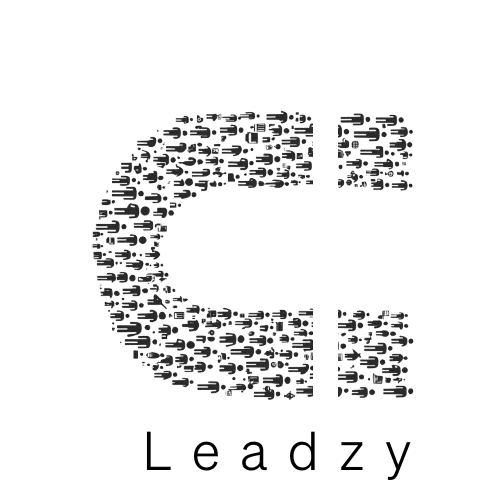Understand Lead Capture AI: 10 Cutting-Edge Examples
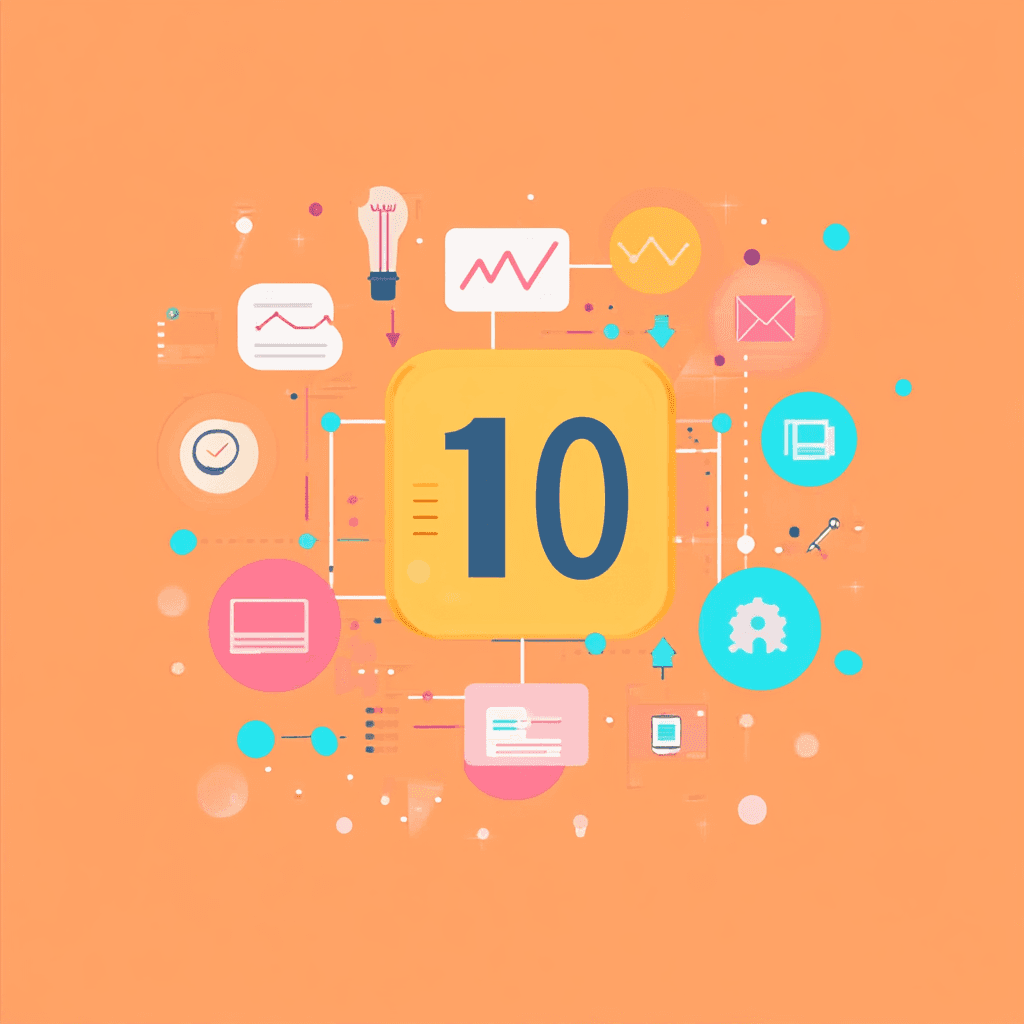
Lead capture used to be all about boring forms asking for emails in exchange for generic ebooks—did they ever really catch your attention? Probably not.
Those methods worked, but they were boring and didn’t create a real connection.
Now, people’s expectations have changed.
They want more engaging and personalized experiences that feel relevant and immediate. They’re no longer interested in cookie-cutter solutions; they want brands to understand their needs from the start.
AI is turning lead capture into something more than just email collection—it's about real-time connections that feel personal and engaging.
These solutions help businesses create meaningful interactions and automate marketing campaigns and marketing messages that drive better engagement and higher conversions.
The evolution of lead capture
Early days: static lead forms
In the early days, lead capture was simple. Forms were static, offering something generic in return for your email address.
The problem? They didn’t feel personalized.
These forms were good at collecting basic data, but they failed to engage users beyond that first interaction.
Traditional lead capture methods, like generic forms, are losing effectiveness because they don’t offer the instant value that consumers seek. Isn’t it frustrating when you sign up for something and receive nothing of value?
Collecting emails is not enough; brands must immediately engage users with relevant, valuable content to keep their attention and increase conversion rates.
Studies show that static forms have low conversion rates—only about 2-3% on average.
That’s because they don’t offer anything immediately valuable. People sign up, and that’s it: no further engagement, no personalized experience. Too basic, right?
Changing consumer expectations
Now, consumers expect more than a one-size-fits-all approach.
They want instant, personalized experiences that align with their preferences.
Consumers expect AI-powered personalization and want brands to deliver instant value customized to their needs. AI addresses this shift by offering personalized marketing automation and lead capture experiences, adapting interactions based on user behavior, and offering valuable insights. It helps engage the audience with personalized CTAs that perform 202% better than the generic ones.
AI-powered lead capture in 2024
AI is everywhere, especially in marketing.
It’s allowing brands to customize user interactions like never before.
Imagine this: a user visits your website, browsing through products. AI steps in, analyzing behavior in real-time to provide personalized recommendations. This smooth integration of AI isn’t just speeding up the process; it’s optimizing the entire generation process by identifying ideal customers and turning them into hot leads.
The customer knows what he wants and makes a purchase instantly.
This isn’t just about speed; it’s about creating a more engaging experience that feels personal. This smooth interaction shows how AI transforms marketing, creating relevant experiences that feel natural and engaging.
Not only this, using AI-powered tools can drive your lead conversion rates by more than 20%!
Improving experiences
AI has moved beyond basic forms. It now powers dynamic, interactive experiences like quizzes, chatbots, and product recommendations that adapt to what each user does.
For instance, a quiz can each answer and shape the next question—this keeps users engaged and makes the experience feel tailor-made for them.
Instead of static forms, AI enables tools that adjust based on each user’s actions, ensuring a customized experience. Here’s how:
Personalized Quizzes: AI quizzes adapt questions as users answer, gathering relevant information that qualifies leads more effectively. Read more about the industries benefiting from these quizzes here.
AI-Driven Product Recommendations: AI instantly suggests products, improving conversion chances by aligning with user preferences.
It doesn’t just stop at quizzes and product recommendations. Tools like LeadzyAI go further to engage users and provide valuable insights through other dynamic methods:
AI-Enhanced Surveys: Custom surveys gather deeper insights by adjusting questions based on user behavior, resulting in richer data and qualified leads.
Dynamic Landing Pages: AI alters landing page content in real-time, ensuring visitors see information relevant to their interests and needs, increasing engagement and conversions.
LeadzyAI also offers personalized reports and custom plans, like highlighting product strengths by creating content specific to users’ input. This helps you drive sales and marketing efforts.
For B2B companies, AI can also automate the initial outreach, guiding prospects through the buying process and customizing recommendations based on real-time activity. These AI-powered tools keep users engaged, increase conversions, and create experiences that feel both personalized and valuable.
Let’s look at more of what AI offers for lead capture
Instant Feedback: Provides real-time recommendations, creating an engaging experience that interests users.
Higher Conversion Rates: AI-driven interactions convert better than static ones by offering relevant and custom content.
Efficiency: AI solutions automate the activity for tracking leads and centralize the list upload process, ensuring the right information is accessible at every sales stage.
Scalability: AI scales personalized interactions across thousands of users simultaneously, maintaining quality and consistency without extra resources.
10 cutting-edge AI examples in lead capture
AI is changing how we capture leads, making the process smarter, faster, and more engaging.
Forget static forms. AI delivers interactive, personalized experiences that capture attention and drive conversions. Let’s check out 10 cutting-edge examples of how AI is transforming lead capture:
1. Real-time personalized quizzes
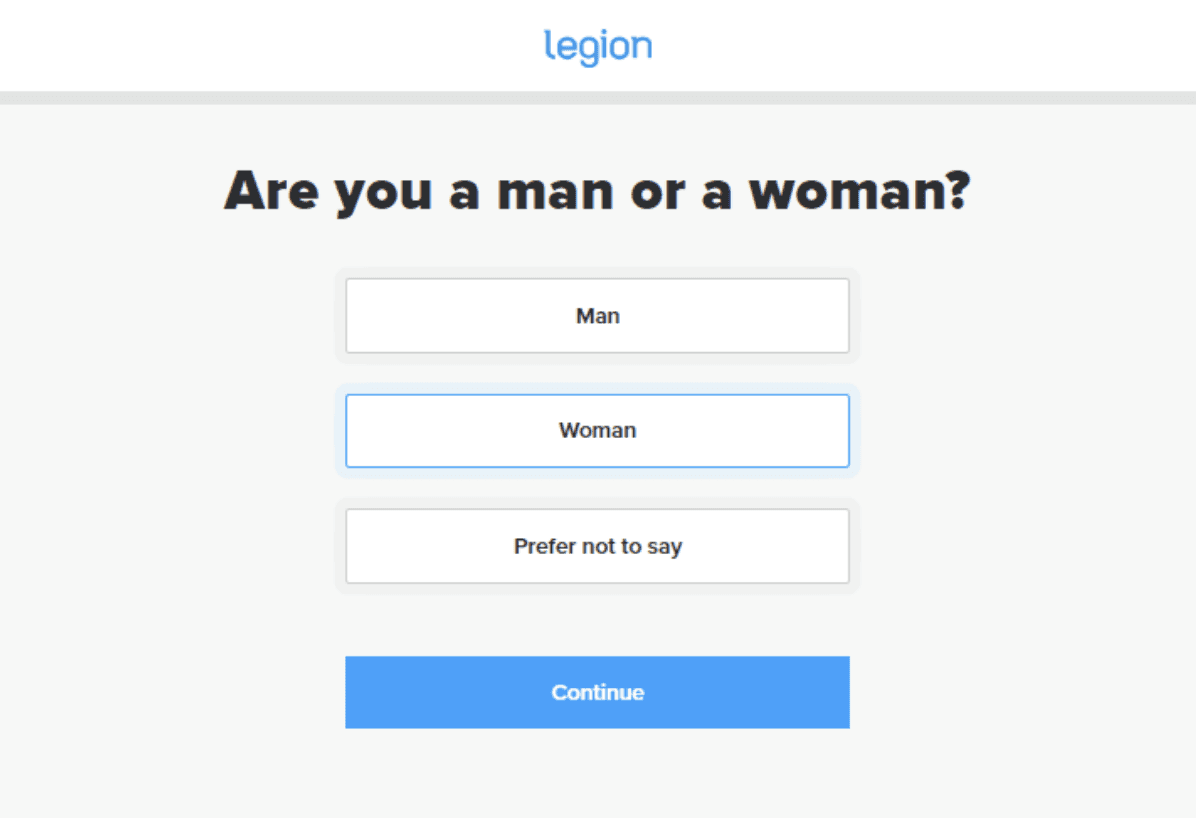
Source: Legion
AI adapts quiz questions based on user responses, creating a customized path that engages users and provides relevant insights.
Neil Patel’s use of quizzes for his new brand, Nutrition Secrets, increased lead capture by 500% on his site. These quizzes, powered by AI, engage millions of users daily by adjusting questions based on previous answers, leading to personalized results.
2. AI-driven product recommendations
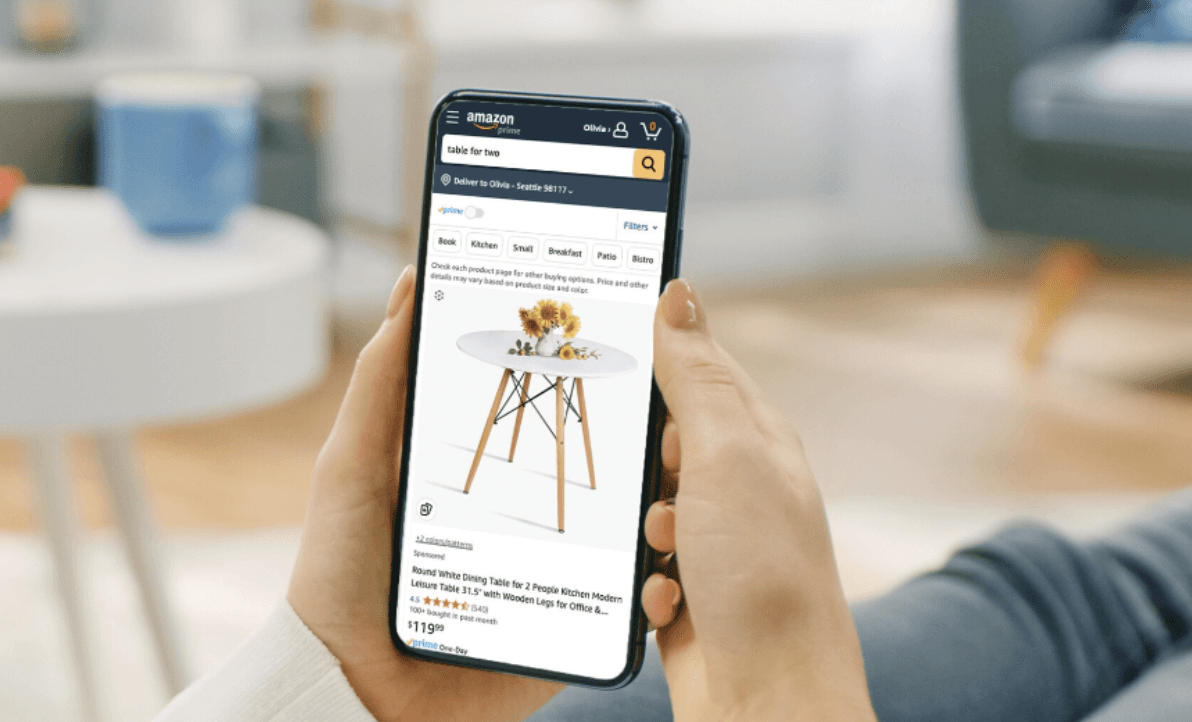
Source: Amazon
Ever noticed how Amazon always seems to know what you’re looking for before you even search for it?
You’ll be scrolling on your phone, and bam—there’s a suggestion that’s just right. That’s all thanks to AI. AI offers product suggestions in real time, increasing the likelihood of conversion.
Amazon is a prime example of a company that effectively uses AI to provide personalized product recommendations. By analyzing user behavior and past purchases, Amazon’s AI suggests products that align with customer preferences, accounting for 35% of their total sales revenue.
3. Interactive AI chatbots
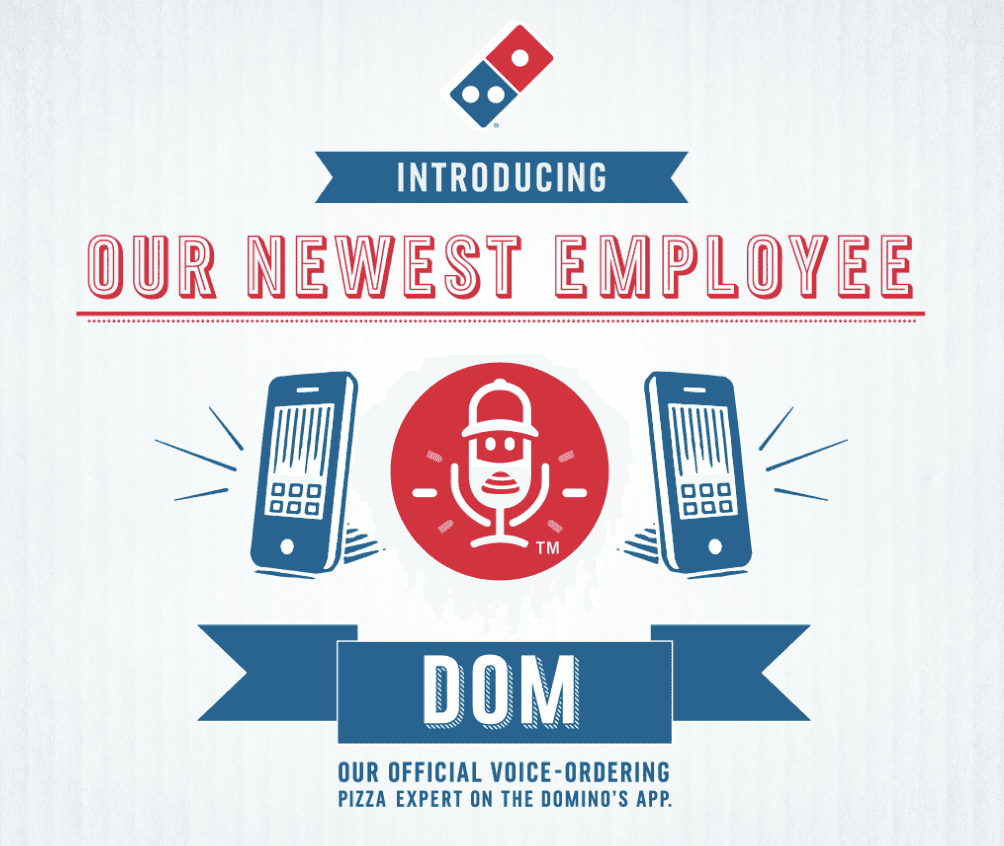
Source: The Shorty Awards
Domino's Pizza has successfully utilized an interactive AI chatbot called “Dom” to speed up its ordering process. Dom is available on multiple social media platforms and even smart home devices such as Amazon Echo.
The coolest part? It’s all automated. Dom takes care of the whole process, making it super quick and easy, which keeps customers coming back. By personalizing the experience, Domino’s makes sure you get what you want without the hassle. Just a few taps and you’re all set.
4. Predictive analytics for lead scoring
AI tools analyze user behavior, providing response rates and other key metrics that help refine the lead qualification process and maximize engagement.
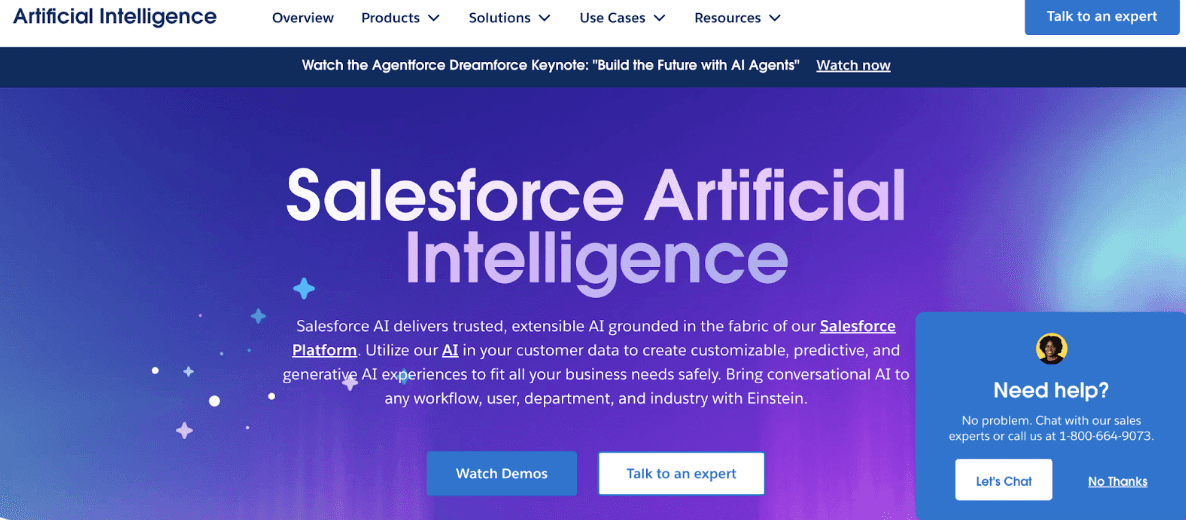
Source: Salesforce
Salesforce's Einstein AI uses predictive analytics to score leads based on historical data, user behavior, and engagement. By analyzing interactions such as email opens, website clicks, and form submissions, Einstein AI provides sales teams with a clear picture of which leads are most likely to convert.
Companies using AI-powered CRM tools like Salesforce have reported up to a 41% increase in sales revenue and reduced marketing costs. This highlights the transformative impact of AI on sales and marketing efficiency
5. AI-powered video interactions
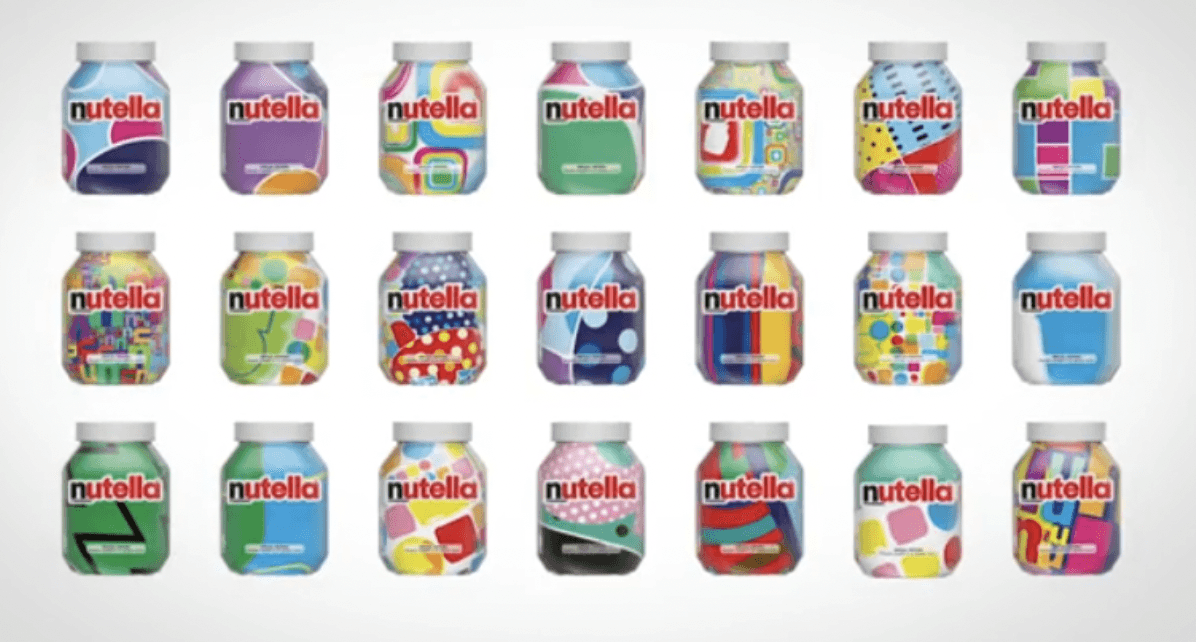
Source: YouTube
AI customizes video content based on user data, adjusting messages and calls-to-action in real time, making each viewing experience relevant and engaging.
As part of their Nutella’s campaign, AI was used to generate 7 million unique, colorful designs on Nutella jars. These designs were promoted through personalized AI videos, engaging customers on an individual level. The campaign was a huge success, selling out in just a month.
This demonstrates how AI can help create highly personalized and visually engaging content that drives customer interest and sales.
6. Adaptive AI lead forms
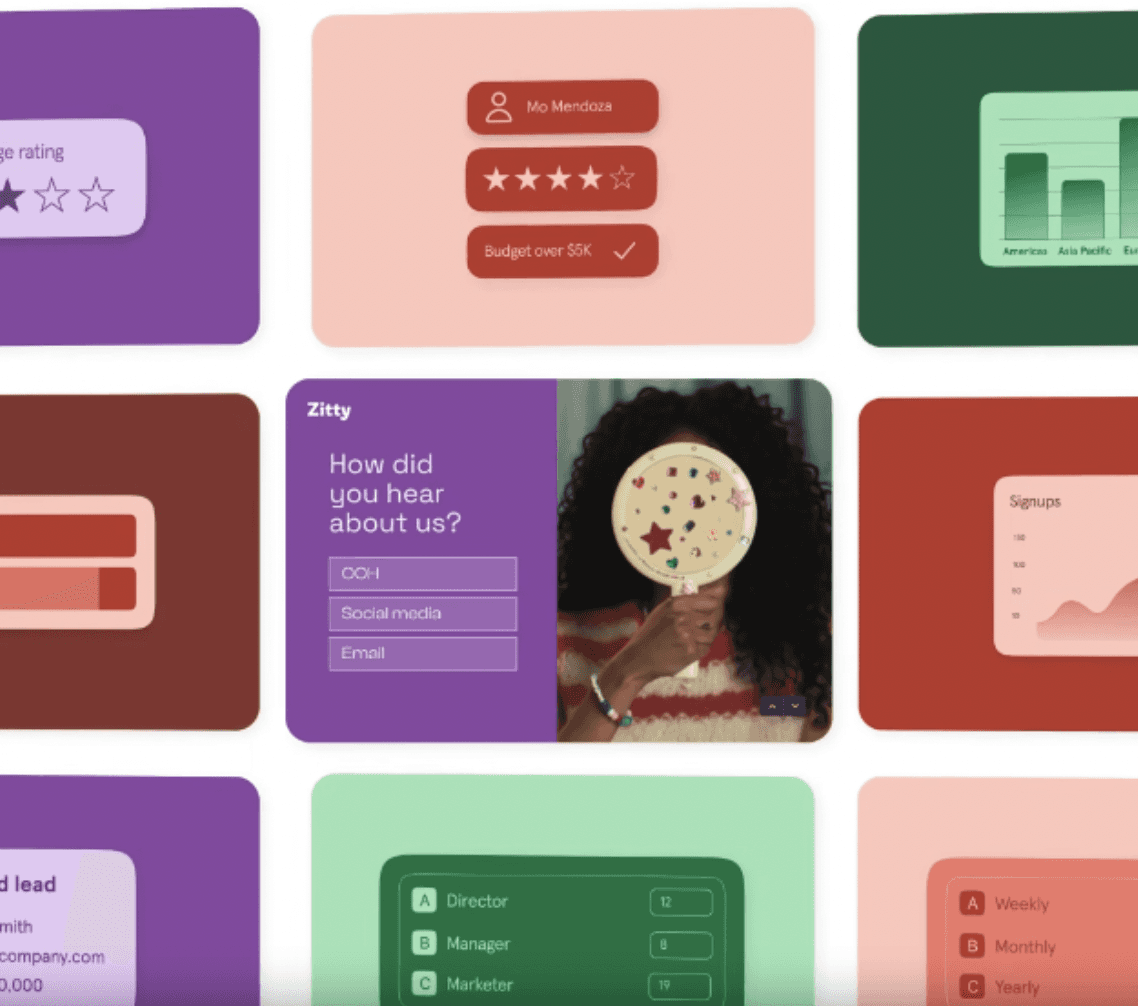
Source: Typeform
AI forms change dynamically based on user behavior, increasing the likelihood of form completion and lead capture by matching the user’s preferences to convert unqualified leads.
Typeform uses conversational, AI-driven forms that adapt based on user inputs. Instead of traditional static forms, Typeform’s forms change dynamically depending on the responses. For instance, if a user indicates interest in a particular product or service, the form will automatically adjust to ask more relevant follow-up questions, creating a personalized flow.
This approach makes the lead capture process feel more like a conversation than a data-entry task, which increases user engagement. 87% of businesses using these adaptive forms are able to get better insights into customer data.
7. Personalized web experiences

Source: YouTube
Imagine visiting a website and seeing content that feels like it was made just for you. It sounds engaging, right?
This is what a personalized web experience is, and brands like Sephora can be seen making the best out of this approach.
Sephora’s website and mobile app offer personalized beauty recommendations through their AI-powered features like the "Virtual Artist." This tool analyzes a user's skin tone, facial features, and past purchases to suggest products that match their preferences.
By personalizing product suggestions, tutorials, and even discounts based on browsing history, Sephora keeps its customers engaged and encourages them to explore and buy more products, leading to significant boosts in lead capture and conversion rates.
8. Instant custom plans
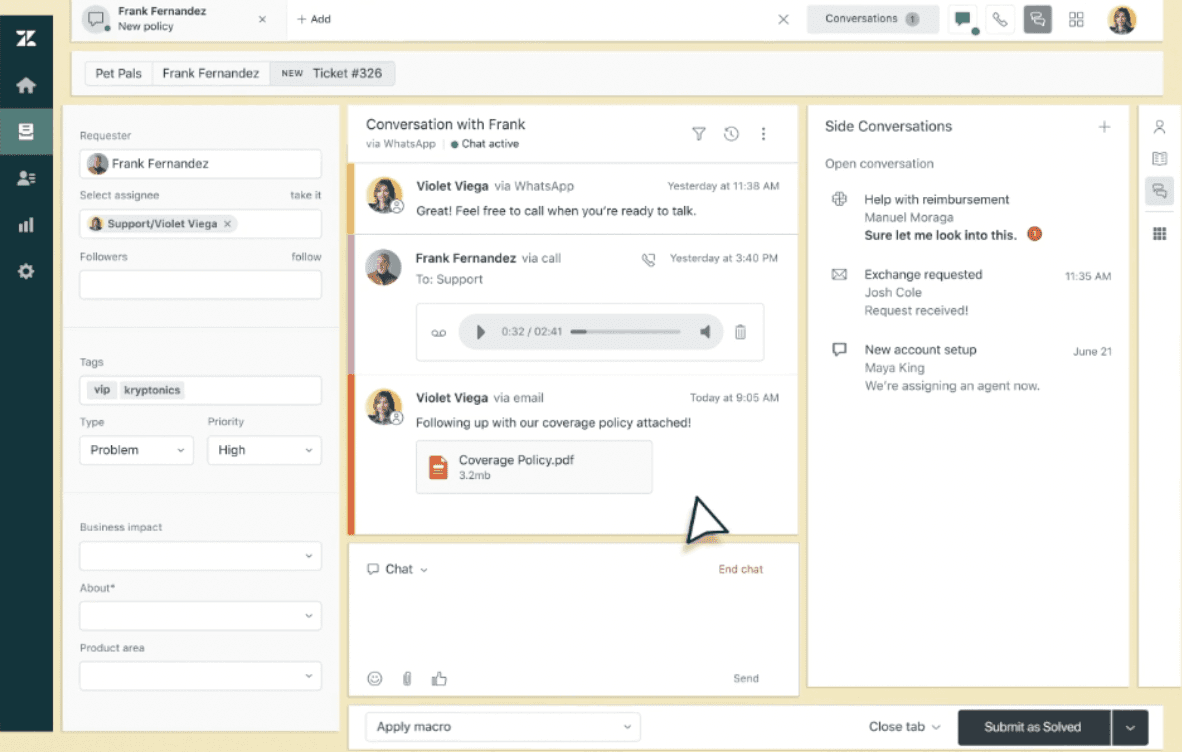
Source: Zendesk
AI instantly generates personalized plans, ensuring users receive value that feels specific to them.
Zendesk uses AI to create customized onboarding plans for its customers. The AI analyzes client data, such as business size, industry, and past interactions, to provide tailored onboarding steps and pricing models. This AI-powered approach has reduced onboarding time and increased overall customer satisfaction
9. Automated lead nurturing
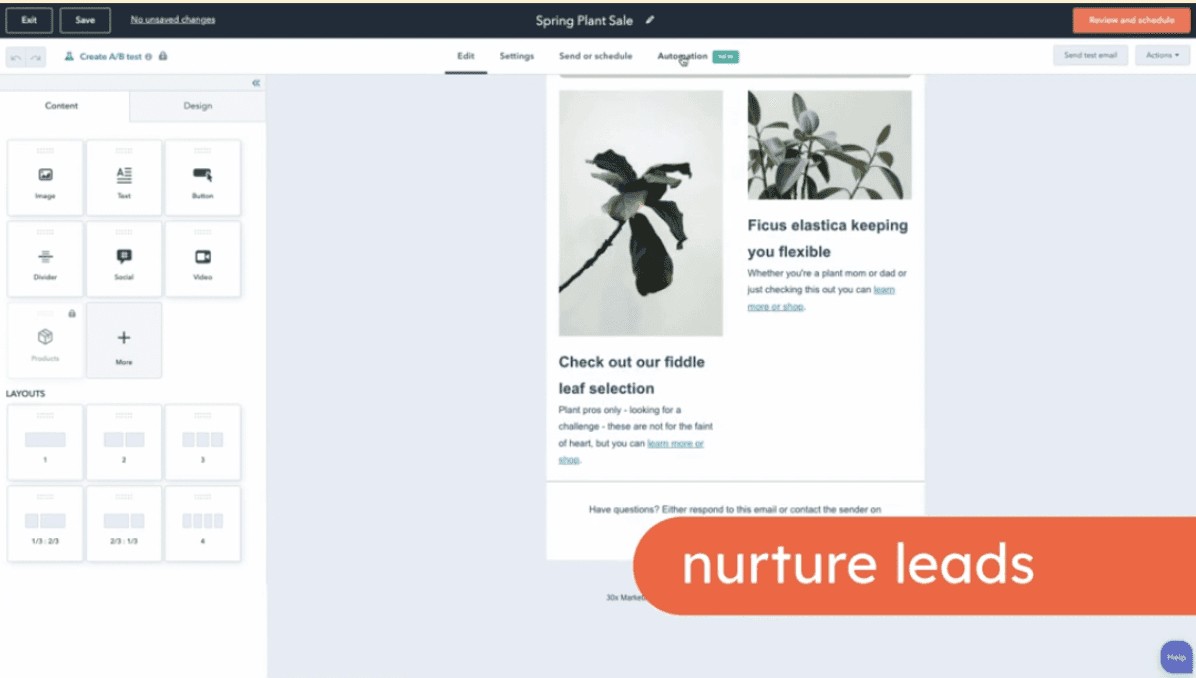
Source: HubSpot
AI uses behavioral insights to automate follow-up processes, sending personalized content at the right time, which keeps leads engaged over longer periods.
HubSpot integrates AI into its marketing automation platform, analyzing customer behavior to send personalized follow-up emails at optimal times. This approach increases lead engagement as automated workflows are designed to respond to user interactions in real-time.
10. AI in social media lead capture
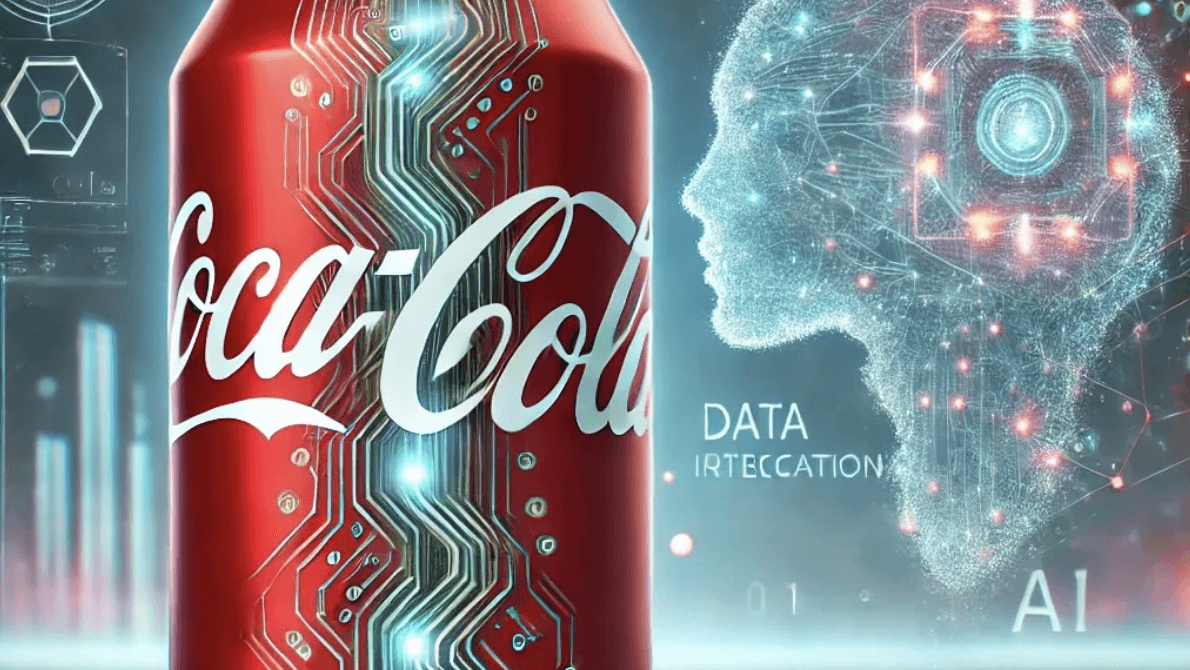
Source: LinkedIn
AI analyzes user interactions on social media platforms to serve personalized ads and posts, effectively capturing leads through customized engagements.
Brands like Coca-Cola used AI to analyze user interactions on social media, helping to personalize advertisements and content. By using AI, Coca-Cola was able to understand customer preferences and behaviors on platforms like Instagram and Facebook.
This enabled them to create hyper-targeted ads and social posts that helped increase their social media click-through rate and overall engagement.
Boosting lead conversion with AI
AI isn’t just about capturing leads; it’s about efficiently turning those leads into conversions.
AI uses data-driven decision-making to track user behavior, providing additional lead intelligence that sales teams can use for personalized outreach. Through centralized lead management, these AI tools monitor the entire sales process so that only qualified leads move forward. Additionally, AI automates email marketing metrics tracking to refine strategies and boost conversions.
But how exactly does it work? Let’s check out a couple of ways AI is boosting lead conversions.
Data-driven decision making
Think about the amount of data a business collects daily—website interactions, social media behavior, past purchase history, and so much more.
AI takes all this information and analyzes it to understand user behavior patterns. This means it knows when and how to engage visitors most effectively. AI can automatically prompt a custom offer or demo request, increasing the likelihood of conversion.
By analyzing vast datasets, businesses can fine-tune their lead capture AI processes, ensuring that every action is intentional and impactful.
Real-time adjustments
What if your lead capture strategy could adjust itself instantly? With AI, this isn’t a futuristic concept; it’s happening now.
AI updates landing pages, forms, or chat responses based on how visitors interact with your site. Imagine if your website could instantly adapt to every click. How much more engaging would that be?
For instance, if a user starts a chat about a specific product feature, the AI chatbot can immediately switch to offering relevant product details or discounts right when the user is most engaged.
By continuously learning and optimizing on the go, AI ensures every visitor has a smooth, relevant journey from interest to action.
Incorporating these AI-driven strategies doesn’t just enhance user experience—it maximizes conversions by adapting quickly and intelligently, ensuring no opportunity is wasted.
Key Takeaways
AI has reshaped how businesses capture and convert leads, making the process more dynamic, personalized, and effective. From adaptive quizzes and chatbots to real-time personalized recommendations, AI tools allow businesses to engage users like never before.
The benefits are clear: higher conversion rates, more meaningful customer interactions, and much more that adapts to each visitor's needs.
As we’ve explored, the evolution of lead capture is about more than just collecting information. It is about building connections and delivering immediate value.
Want to see your lead strategy in action? Try LeadzyAI and watch how personalized AI experiences can turn leads into loyal customers.
Get started today and see how you can boost your lead conversion rates with more innovative, more engaging AI solutions.
Frequently Asked Questions
1. What is a lead capture system, and how does it work with AI?
A lead capture system is a tool used to collect information from potential customers, typically through forms, quizzes, or interactive content. When integrated with AI, these systems become smarter and more personalized to enhance engagement and increase conversion rates.
2. How can lead capture software improve conversion rates?
Lead capture AI can significantly boost conversions by automating the process of engaging with users. It offers real-time recommendations, personalized quizzes, and dynamic forms.
3. What is the role of a capture page in AI lead generation?
A capture page is designed to collect user information, but when AI is incorporated, it goes beyond just gathering emails. AI analyzes user behavior, delivering dynamic content and personalized offers to make the lead capture process more effective.
4. What are the best methods for lead capture AI in 2024?
The best lead capture tools combine AI technology to create dynamic, personalized experiences. Examples include interactive chatbots, AI-powered landing pages, and adaptive forms that change based on user preferences.
5. How does the lead collection process change with AI integration?
The lead collection process becomes more interactive and personalized with AI integration. Instead of static forms, AI tools analyze user behavior, offering custom quizzes, recommendations, and surveys that provide immediate value. This shift leads to higher engagement rates and more qualified leads.
